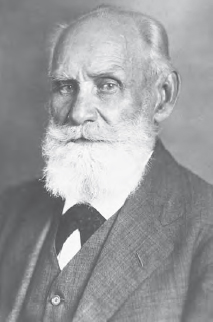Analytic PhilosophyPhilosophy of Mind and Philosophy of Language |
What is behaviorism? |
Propounded by psychologists Ivan Pavlov (1859–1936) and John Broadus (J.B.) Watson (1878–1958) and streamlined by Burhus Frederick (B.F.) Skinner (1904–1990), behaviorism was the thesis that introspection had no use for a science of mind. Behavior is modified by its consequences in ways that can be described without any recourse to the mind in terms of intentions, beliefs, or prior knowledge. Human psychology was no more than behavior that could observed in the laboratory, without considering that behavior from the point of view of the subject who was “behaving.” Learning is conditioning, a series of automatic responses to repetitive rewards and punishment. Watson propounded the theory of behaviorism in his book Behaviorism (1925).
Noam Chomsky’s (1929–) review of Skinner’s 1959 classic tome Verbal Behavior is taken to have demolished Skinner’s behaviorist theory of language learning, and behaviorism more generally. This is important to philosophy in two ways. First it restores the importance of how things seem or are experienced by a human subject. Second, it allows for speculation and analysis of how what is going on in the subject’s mind is organized and processed in the brain.

